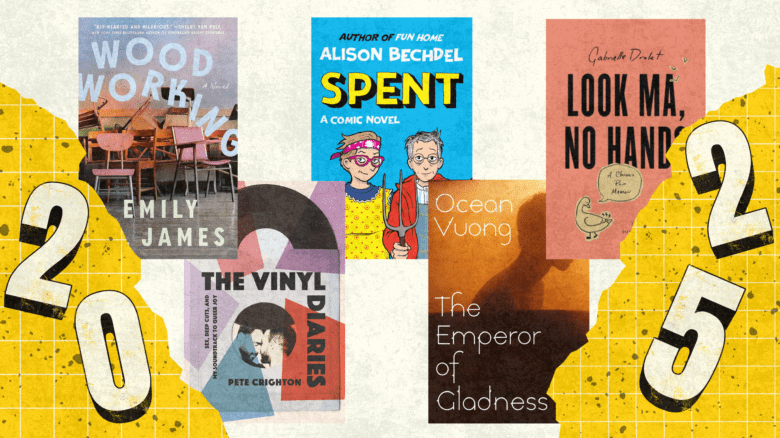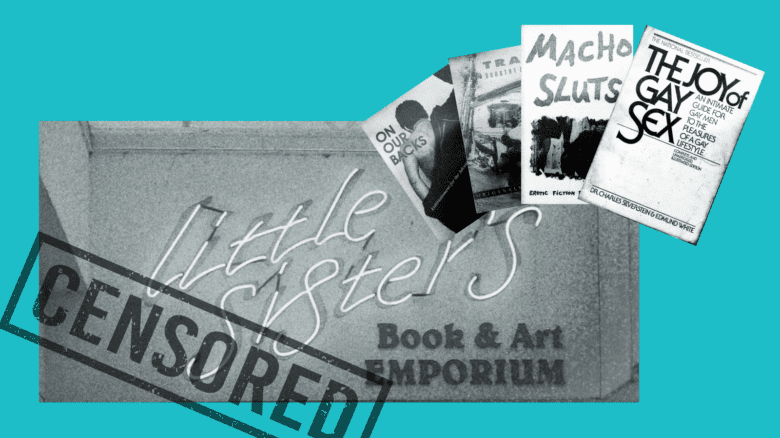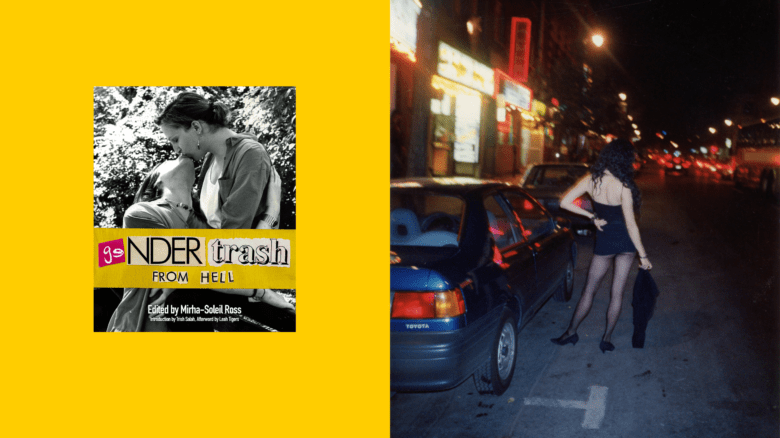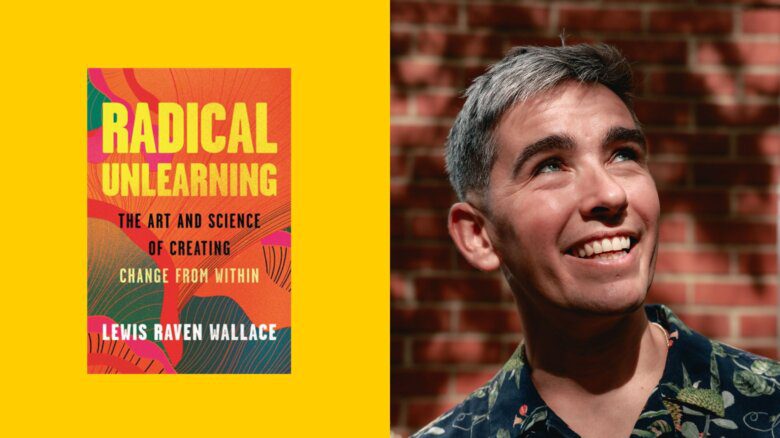The man some consider to be the inventor of gay politics as we know it today held racist and sexist views, was a proponent of eugenics and developed an approach to gay activism that was supported by his own theory of “the races.”
That’s a key argument made by Laurie Marhoefer in their latest book on the renowned German sexologist Magnus Hirschfeld, Racism and the Making of Gay Rights: A Sexologist, His Student, and the Empire of Queer Love, which was published this spring. But the book also tells a story about Hirschfeld’s personal life, relationships and influences, offering a compassionate critique of one of the world’s first gay heroes.
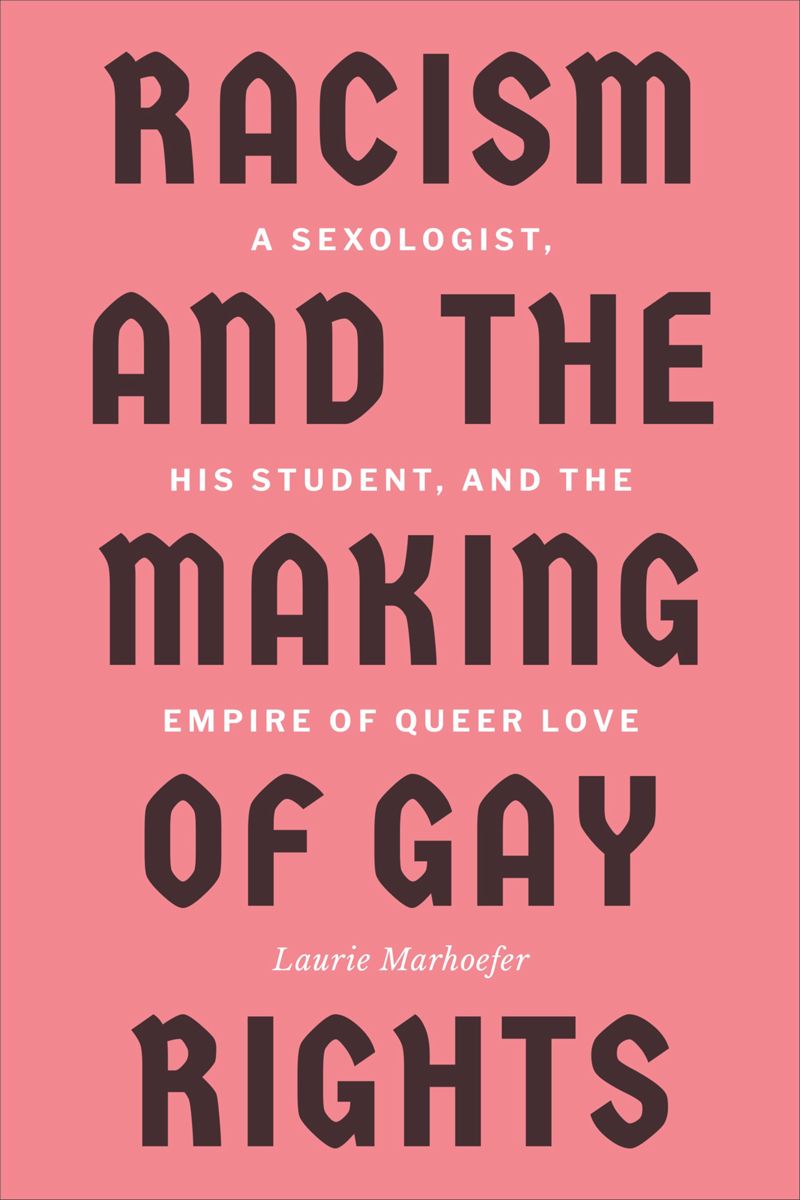
Credit: Courtesy of University of Toronto Press
Marhoefer, who is an associate professor and historian of queer and trans histories at the University of Washington, weaves their analysis of Hirschfeld’s more worrisome ideas together with the most comprehensive English-language account to date of the life of Li Shiu Tong, a Chinese sexology student 40 years Hirschfeld’s junior who became his assistant, protégé and heir—and was perhaps his lover.
Before meeting Li, Hirschfeld had already built a name for himself as the world’s pre-eminent expert on sexuality and a pioneer of the nascent field of sexology. In 1897 in Berlin, he founded the Scientific Humanitarian Committee, which some consider to be the world’s first LGBTQ+ rights organization, and in 1919 he created the Institute for Sexual Science. From his institute in the German capital, Hirschfeld conducted groundbreaking research on gender and sexuality, and developed revolutionary ideas about homosexuals as a distinct class of people whose desires were shaped by their biology. Though many of his core ideas are no longer widely accepted, they had a large influence on the evolution of LGBTQ+ politics, and how gay men in particular thought of themselves, in the 20th century.
In 1930, Hirschfeld embarked on a world tour to promote these ideas, arriving first in the United States, where he was billed as the “Einstein of sex.” It was while on a stop in Shanghai the following year that Hirschfeld met Li. The 23-year-old son of a wealthy and influential Chinese businessman, Li approached the famous sexologist after attending one of his lectures.
“Likely the first thought in his mind was to make a professional connection with Hirschfeld,” Marhoefer writes. “Li was ambitious. In the month following this meeting, it became apparent that Li wanted to be a sexologist himself and wanted to study in Europe.” Li soon joined Hirschfeld as he continued on his world tour. “He offered himself to me,” Hirschfeld wrote about meeting Li. “As a ‘companion’ and ‘protector,’ to take care of me and help me where I might want to travel in China.”
As the two travelled Asia together, from the Philippines to India, Hitler rose to power back in Berlin. As a homosexual and a Jew, Hirschfeld feared returning to Germany, and was accompanied by Li as he went into exile, first in Austria and Switzerland, and finally in France. Li remained Hirschfeld’s assistant and protegé until Hirschfeld’s death in 1935, at which point Li was bequeathed all of the sexologist’s personal belongings.
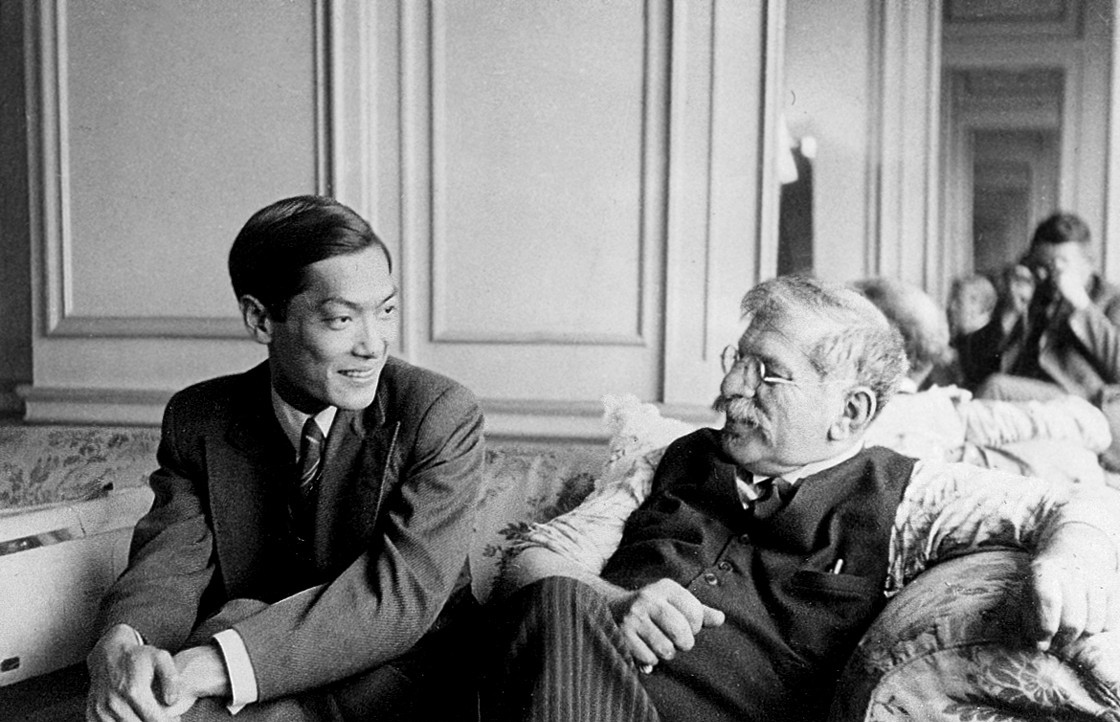
Credit: Wellcome Collection via Wikimedia Commons under CC BY 4.0
Li went on to study in Zurich and at Harvard with the intention of becoming a doctor, after which a large gap in Li’s story remains. Eventually, he moved to Canada, but left few records of his existence until his own death in Vancouver, age 86, in 1993. His death led to the discovery of his belongings in the trash behind his downtown apartment building, including yellowed photographs, pages of notes in German, an unfinished manuscript by Li and what appeared to be Hirschfeld’s death mask.
In his manuscript, Li elaborates on many of Hirschfeld’s ideas, proving that, even if he did not do so publicly, Li continued to think about and study sexology throughout his life. He also diverged with his mentor’s model of homosexuality in many ways. “A homosexual is not born but made,” Li wrote, arguing against Hirschfeld’s idea of an innate sexual identity. He also wrote about sexual fluidity and bisexuality, themes unexplored by Hirschfeld, and believed that almost no man or woman was heterosexual for life. “Such a person should be classified as [an] endangered species.”
“‘A homosexual is not born but made,’ Li wrote, arguing against Hirschfeld’s idea of an innate sexual identity.”
Marhoefer’s book about these two intertwined lives is part love story, part queer history. It denounces Hirschfeld’s racism and sexism, such as his anti-Blackness, support for eugenics and belief that men were generally smarter than women. At the same time, the book acknowledges the sexologist’s huge influence on the trajectory of gay rights movements over the past century. Marhoefer draws heavily on both Hirschfeld’s 1933 book Men and Women: The World Journey of a Sexology about his world tour, as well as his more controversial book Racism, about racism and his theory of the races, which was published posthumously in 1938. Marhoefer also attempts to recuperate Li’s story and legacy, working with a fragmented archive, to argue for Li’s rightful place in the history of the early gay rights movement.
Marhoefer spoke with Xtra over Zoom from their home in Seattle, Washington.
Hirschfeld figures prominently in your 2015 book Sex and the Weimar Republic, which is about gay and trans politics in 1920s Germany amid rising fascism. Why did you want to return to Hirschfeld, and why did you decide to incorporate the story of his relationship with Li into this reflection on Hirschfeld’s theories of race and racism?
There was a lot about anti-Semitism in my first book, but there wasn’t a lot about racism. That seemed weird because Germany had all these colonies, and whiteness is something that Germans thought about. So I started to look at Hirschfeld’s work more closely and saw that he wrote all about the races, and he says he’s an anti-racist, but then has these horrible comments about Black people. So I thought I’d write a boring journal article and five people would read it. But for due diligence, I had to go back and reread his book about the world tour. There’s a secret love story in this book, and it just blew me away. There are all these little moments that have such emotion in them about him and Li together. And then I wondered, what was it like for Li? Who is this guy? Is he in love with Hirschfeld? Maybe not, because Hirschfeld seems like he’s kind of racist, he’s very overbearing, he’s much older, he’s really famous and he’s super into himself. What does Li make of all that?
The book is part biography and part intellectual history, and is written in an engaging, narrative style. How did you settle on this approach?
I started taking fiction-writing classes, which helped me really focus on story and people and what was interesting about them. If I was restarting, maybe it would just be a biography. I feel like the intellectual history parts are kind of dense, but somebody needed to say some of these things. Somebody’s got to put all the quotes together where he’s horrible and just lay it all out there. And then if people still love him, that’s fine, but at least it’s your one-stop shop for Hirschfeld’s disturbing moments.
Why was it important for you to trace the whiteness and maleness of the current gay movement to the story of Hirschfeld and the early gay rights movement?
In the last 10 years, a lot of white gay activists have gotten better at listening to queer of colour activists. But what I found is that if you go back to the very beginning of gay politics, the problem is this concept that being gay is like being a member of a race. That was so profound and influential, but it sets up this thing where you can only be white and gay. It’s kind of confusing because a lot of these people are Jewish, and they’re Jewish and gay. But their understanding of what it means to be Jewish is that they were white. You end up with gay politics meaning fighting for the rights of gay people, which means fighting the sodomy law, but it doesn’t mean fighting racism, even though the majority of gay people have to fight racism, because they’re not white, and that has to be part of your politics.
Your book describes Hirschfeld’s “theory of the races,” which include ideas about “primitive peoples” having smaller brain sizes, as well as his support for eugenics, in particular his advocacy for the sterilization of people deemed to be “feeble-minded.” If Hirschfeld’s racism and sexism were so egregious, then why were they overlooked for so long?
When he was rediscovered in the 1980s, he was super important for gay rights in Germany, and a lot of people did a lot of work to save his papers and to bring him back to prominence. I think they’re right—he’s really important; he should be in textbooks. So I think when they rediscovered him it was so exciting, and for a lot of people it’s counterintuitive that a guy who was Jewish in Germany and then was attacked by the Nazis could also be racist and have troubling ideas about women. His racism is very complicated, because he does say repeatedly that he’s against racism, and he does have some really inspiring moments where he denounces racism. So I think people got thrown by that. But he’s against scientific racism. He’s against some kinds of racism and not others.
There’s a chapter in the book where you write about Hirschfeld’s encounters with prominent African-American activists and intellectuals, including Langston Hughes and William Pickens. How do you account for his failure to acknowledge their contributions and the contributions of other Black people?
He was racist against Black people in particular, and that was kind of eye-opening for me. When he met Nehru [Jawaharlal Nehru, the first prime minister of India], racism doesn’t come into the picture. He’s not racist against South Asians, he’s not racist against East Asians, but he’s racist against Black people. When they talk, he doesn’t hear—he just sees a Black person. I tried to look back and see what he wrote in particular about Black Americans, and also Black Africans and Black people in Germany, and some of the passages are so weird and convoluted. It seems to me that he knew he should be able to strongly denounce anti-Black racism, but he couldn’t bring himself to do it. The one that really sticks in my mind is the one where he talks about Black Americans having stunted brains. That’s a horrible, shocking statement, but then he weaves it into this thing about how they’re just as good as white people. He’s always trying to get there, but then failing.
In the book’s conclusion, you wonder if it will be read as a call to “cancel” Hirschfeld. You write that this is not your intention, yet you are unsure of how best to deal with him as a historical figure, writing: “He did indeed help to make a world in which many people with queer desires are in far better positions than they would have been in 1931. At the same time, he does not make a verygood gay hero.” Is it fair to judge Hirschfeld by the standards of today?
I think everybody has to make their own decision. At every point, I tried to show that there was somebody he knew in his moment who was saying something different, and that he could have listened to them. There were lots of people in his day who really were against racism, and there were women he knew who were complaining about sexism. And there were people who were against eugenics. This is not a world where there are no great African-American thinkers who are speaking out against racism, and there was a strong Black German movement in Berlin. All of those ideas were available to him.
Turning to the life of Li Shiu Tong, what challenges did you have researching and writing about him, his life and his contributions?
It was hard because Li didn’t write anything about their relationship that I’ve ever been able to see. If he wrote about it, those papers aren’t known to historians. I just had one side of it, and it was the older, famous guy. It really seemed potentially like an exploitative and maybe a harassment relationship because Li was Hirschfeld’s assistant, but he’s also supposed to be his student. You’re not supposed to be having a love affair with your student. I tried to just give readers all the information I had, but I struggled with it until the very end. Li wrote this book that was thrown into the garbage in Vancouver and then rescued. In the book, he writes about Hirschfeld, and he never says that they had a relationship. That seems kind of troubling. Why would he leave it out?
What drew you to trying to understand Hirschfeld and Li’s relationship?
I wanted to get a sense of what they were like as people. With Hirschfeld, there’s this public persona that’s kind of dry and boring, and I was really interested in getting beyond that. Some of the moments that I found where you really see beyond that are moments about him being with younger guys or liking younger guys. It really helped me round out who this person was in private. He was flirty and energetic and tried to be charming, but was also very self-important. I was curious about why Li would be attracted to him.
What conclusions did you come to about Li’s relationship with Hirschfeld?
Li was very wealthy; he came from a very wealthy family, and he had other career paths he could have taken. This wasn’t his only career option. When Hirschfeld was in exile, he wrote in his journal that Li wanted to go and study at Harvard and he was going to pay for Hirschfeld to come with him. I don’t see why Hirschfeld would make that up. So it seemed like Li really felt obligated to this guy past the point where, if it was exploitative and creepy, he could have easily walked away.
Why is there not a better record of Li’s life, his accomplishments and his ideas?
He wasn’t famous, but also we didn’t get there in time to interview his friends and stuff. I tried a little bit to try to get in touch with people in Vancouver and I wasn’t able to. I also think the guy who pulled the stuff out of the garbage probably pulled out the stuff that looked old. So there may have been stuff that went to the landfill. With queer people of colour, this is a problem. Whose papers get saved in the archive? Whose do people spend their own money to collect, and whose end up in the landfill? There’s a sadness that we don’t know more about Li, because he’s so important in queer Asian Canadian history, and there aren’t many queer Asian Canadians who were active in gay politics in the 1930s. He’s the only one I know of.
Is there any hope for future scholarship or breakthroughs about Li?
I feel that every last thing I could track down I put in the book. I think sometimes when you’re a gay history hero, your own family are the worst people to recognize that and preserve your gay hero history legacy. I’m hoping that maybe somebody in his family will see this book and be excited, and maybe they’ll know stuff about him. Also, he did go to Harvard and his student file is closed, but it’s going to open in a couple of years.
How did working on this book change how you thought about or connected with both Li and Hirschfeld?
With Hirschfeld, when I started out, I didn’t have a good sense of who he was as a person. I think by the end I did. I felt like he was a well-rounded person and I could see many sides of him and still admire things about him. But I wouldn’t need to meet him in the afterlife or anything. With Li, I very much felt an emotional connection and kind of admiration for him. If people want to go see Li’s apartment, it’s in downtown Vancouver. I went and just stood outside of it. You can look up at the building and be like, “Wow, this is where the heir of Magnus Hirschfeld lived.” It’s kind of cool. I secretly hope that maybe somebody will put up a plaque or something, but probably not. Maybe we’re not supposed to have gay heroes anyway.
This interview has been edited for length and clarity.
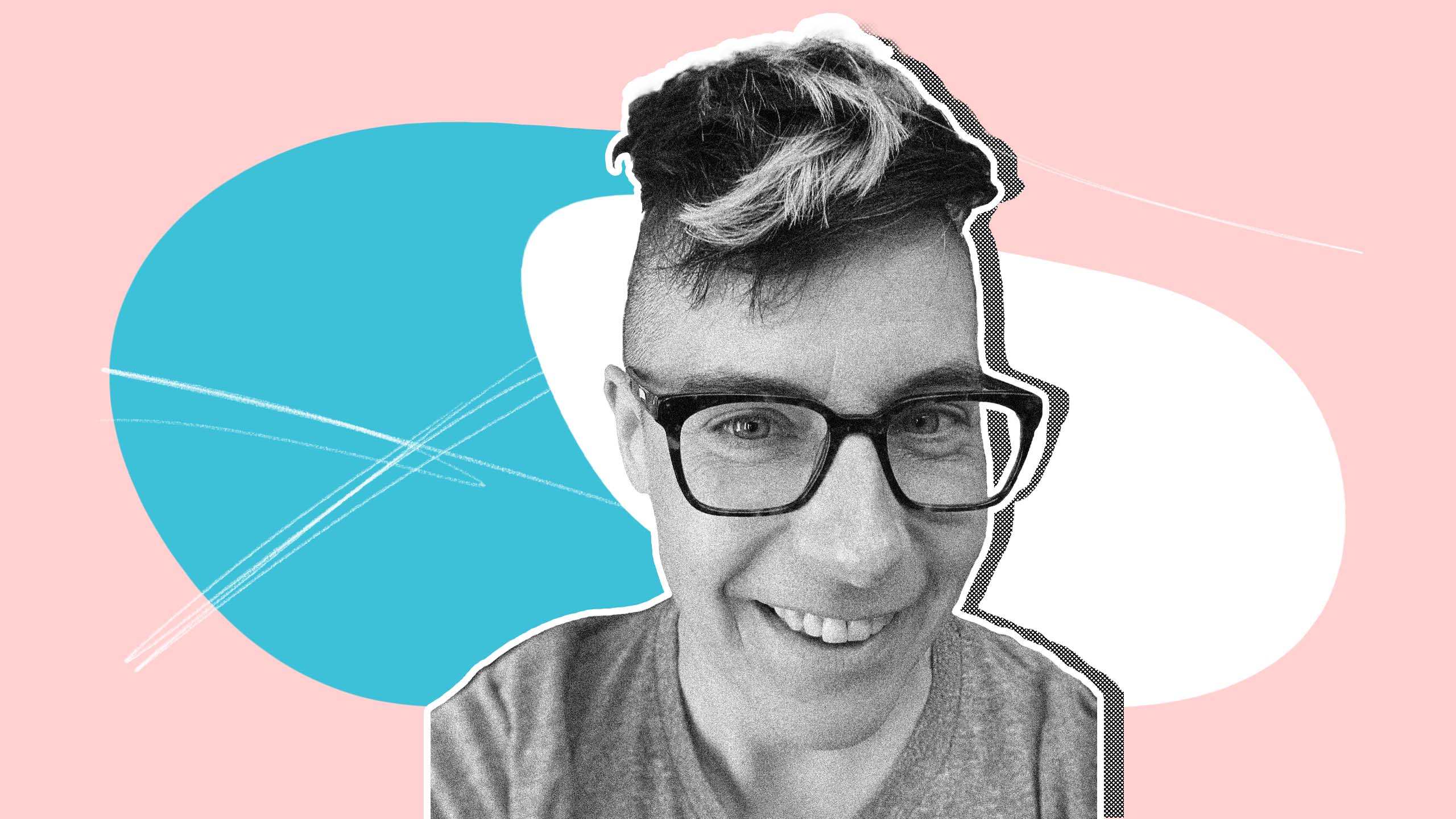

 Why you can trust Xtra
Why you can trust Xtra